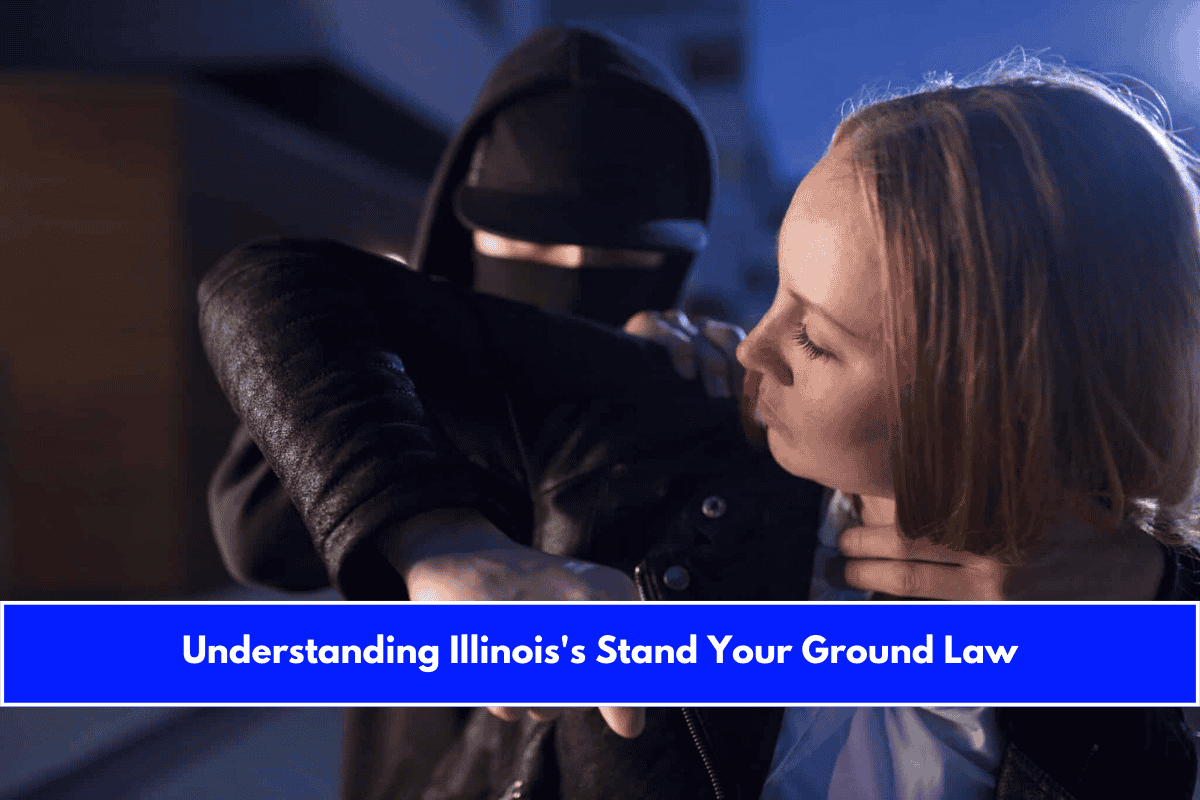Illinois is not a “stand your ground” state. Unlike the majority of U.S. states that have laws explicitly stating there is no duty to retreat before using force in self-defense, Illinois law operates differently.
In Illinois, the general rule is that a person must attempt to retreat or escape a dangerous situation in public, if it is safe to do so, before resorting to the use of force-even in self-defense.
The Castle Doctrine in Illinois
Illinois does recognize the castle doctrine, which allows individuals to use force-including deadly force-against intruders in their own homes under specific circumstances. Under the castle doctrine:
- There is no duty to retreat when threatened inside your own home.
- Deadly force may be used if you reasonably believe it is necessary to prevent death, great bodily harm, or the commission of a forcible felony (such as a violent break-in).
However, this doctrine is limited to your dwelling and does not extend to public spaces.
Duty to Retreat in Public
In public places, Illinois generally imposes a duty to retreat if it is safe to do so. The use of force is only justified when:
- There is an imminent threat that cannot be avoided by retreating.
- The force used is proportional to the threat faced.
If you can safely escape a confrontation, you are legally required to do so before using force in self-defense.
Illinois Supreme Court and Case Law
While Illinois does not have a statutory stand your ground law, the state Supreme Court has held that there is no absolute duty to retreat before using force in public, but this is interpreted narrowly and depends on the circumstances.
The law focuses on whether the use of force was reasonable and necessary to prevent imminent harm, and whether retreat was a safe and viable option.
Key Elements of Self-Defense in Illinois
- Imminent Threat: The danger must be immediate and unavoidable without the use of force.
- Proportionality: The force used must match the level of threat; excessive force can result in criminal charges.
- Reasonableness: The belief that force was necessary must be reasonable from the perspective of an average person in the same situation.
Summary Table: Illinois Self-Defense Laws
| Scenario | Duty to Retreat? | Use of Deadly Force? | Notes |
|---|---|---|---|
| In your home (Castle Doctrine) | No | Yes, if reasonable and necessary | Applies only to your dwelling |
| In public | Yes, if safe to do so | Only if imminent threat and no safe escape | Proportional to threat; must try to retreat if possible |
Illinois does not have a stand your ground law. In public, you are generally required to retreat if it is safe before using force in self-defense.
However, the castle doctrine allows you to defend yourself with force, including deadly force, inside your home without a duty to retreat. The law emphasizes reasonableness, proportionality, and the immediacy of the threat in all self-defense situations.
Misunderstanding these distinctions can have serious legal consequences, so it is important to be familiar with Illinois’s specific requirements for lawful self-defense.
Sources:
- https://www.chicagocriminaldefenselawyer.net/chicago-criminal-lawyer/how-no-stand-your-ground-law-affects-self-defense-claims
- https://www.criminallawyer-chicago.com/blog/does-illinois-have-a-stand-your-ground-law/
- https://www.hankenlaw.com/blog/2024/03/what-you-need-to-know-about-the-illinois-castle-doctrine/
- https://en.wikipedia.org/wiki/Stand-your-ground_law











Leave a Reply